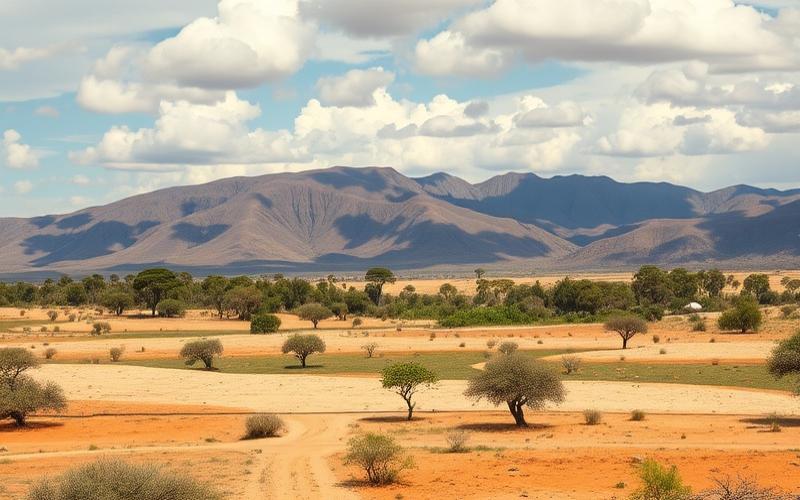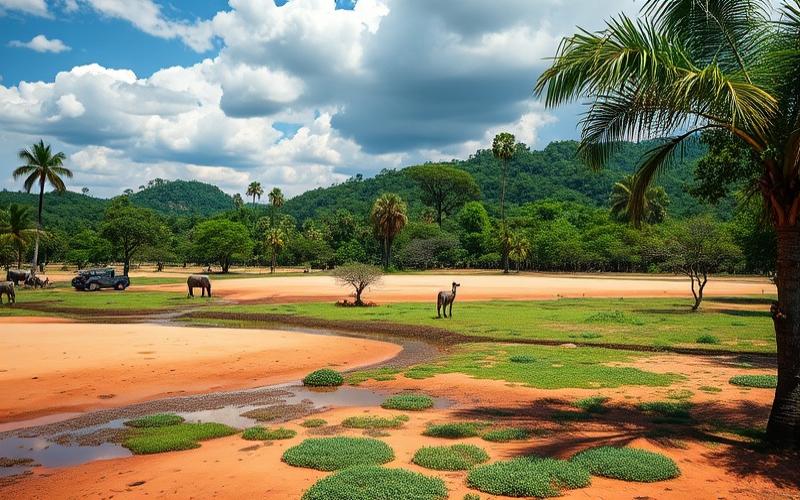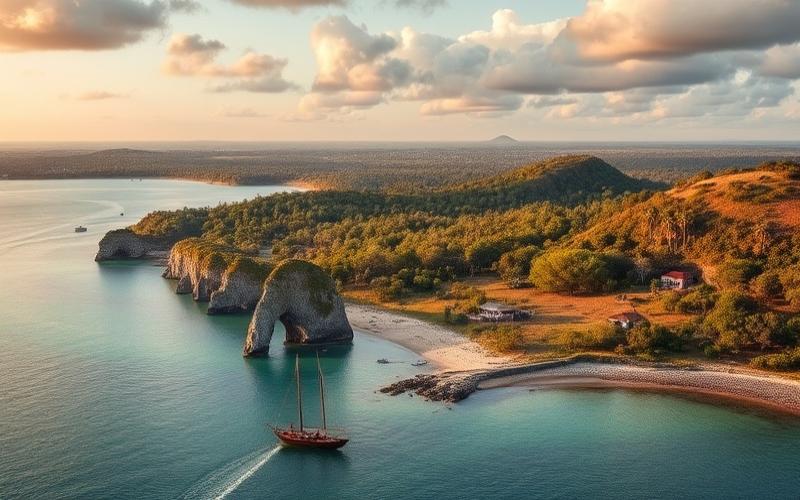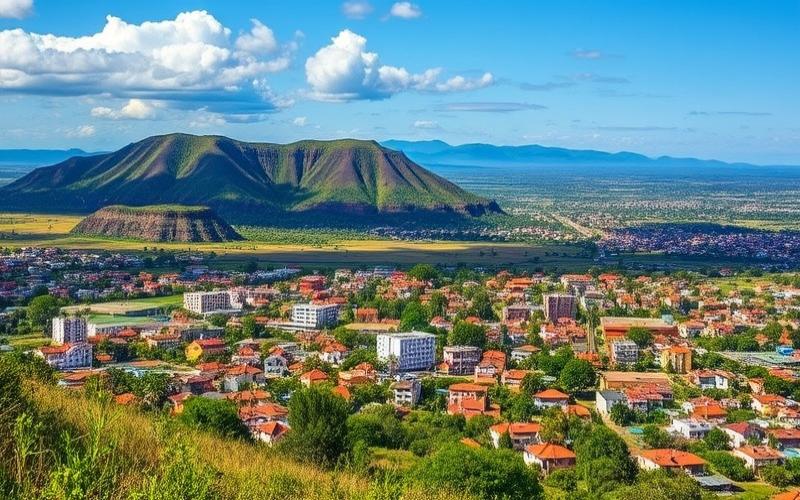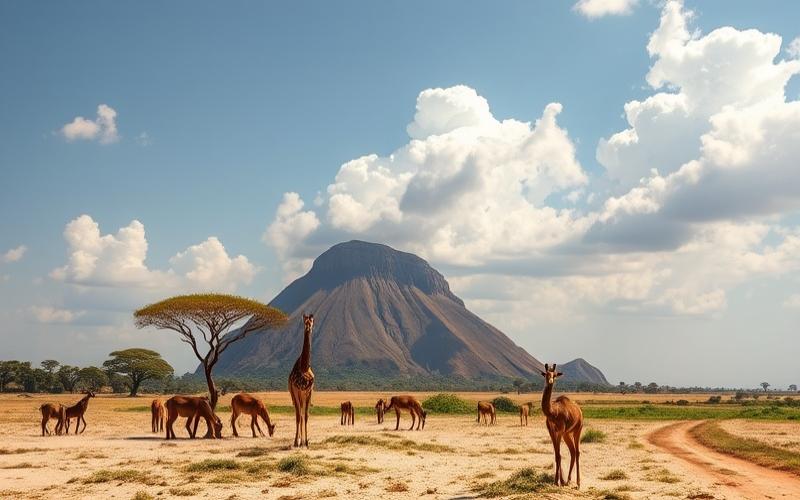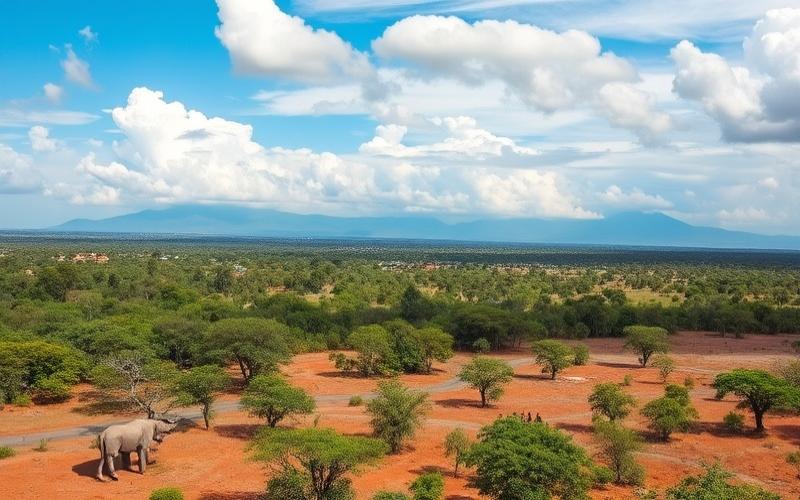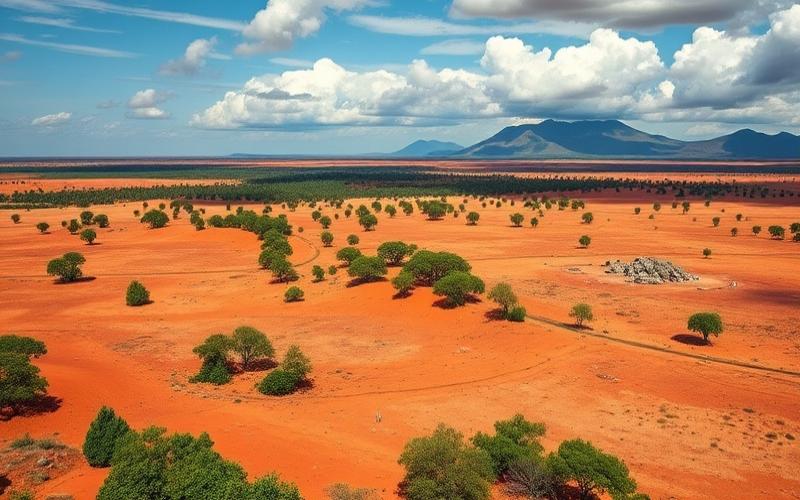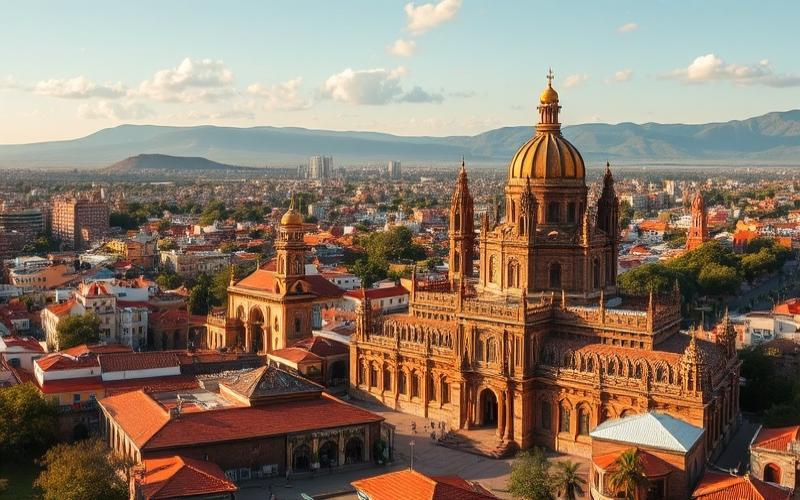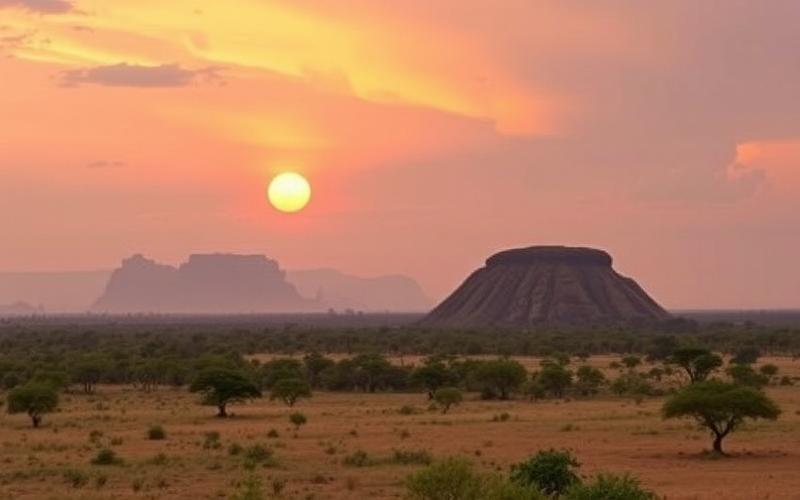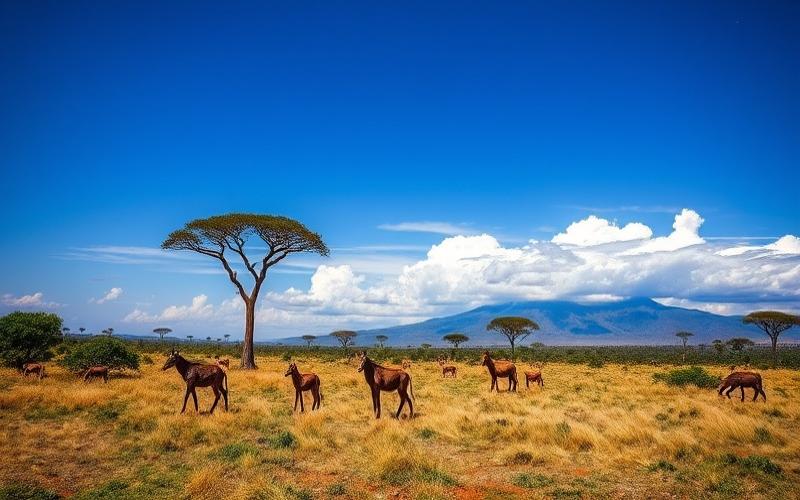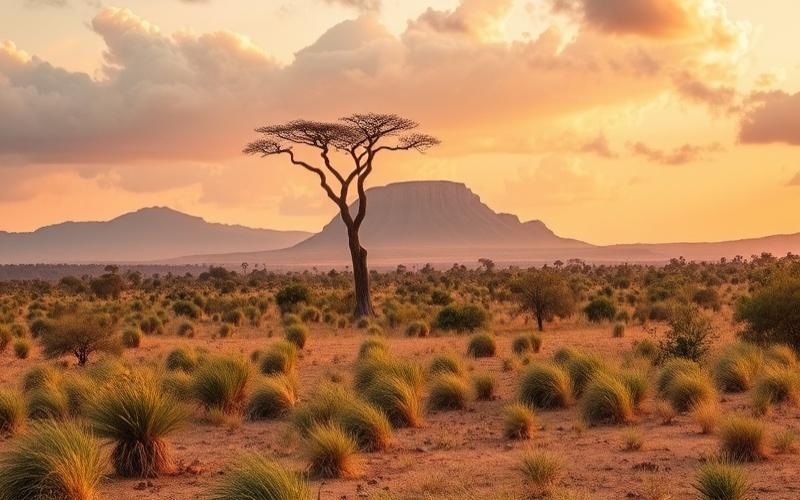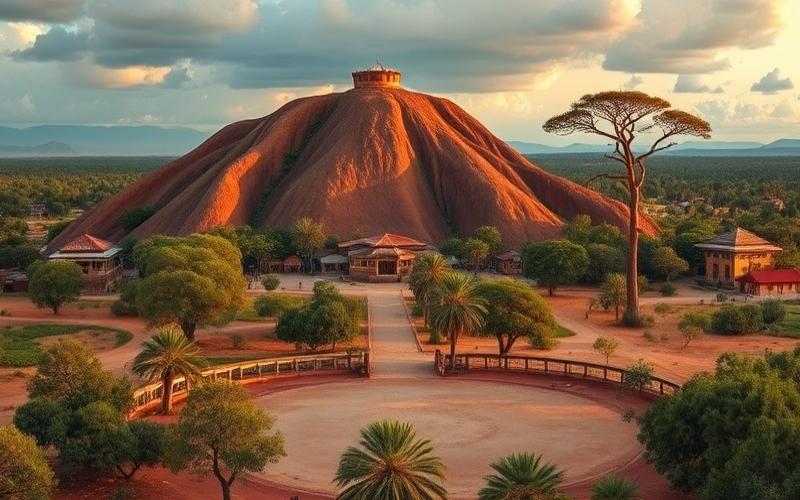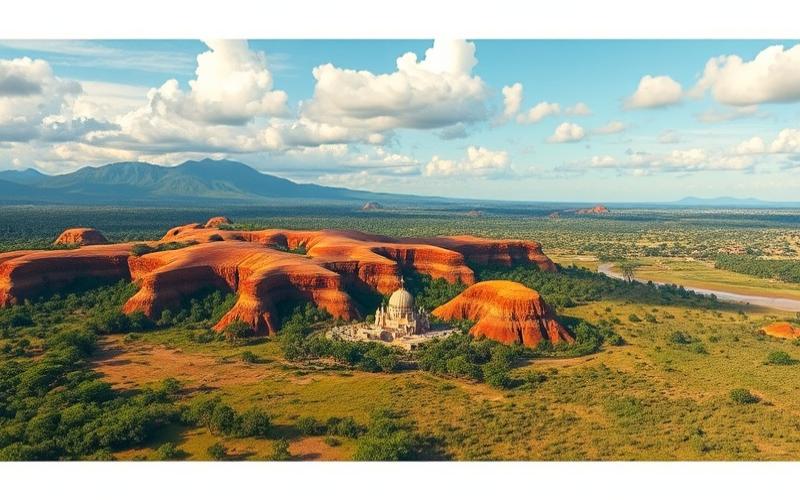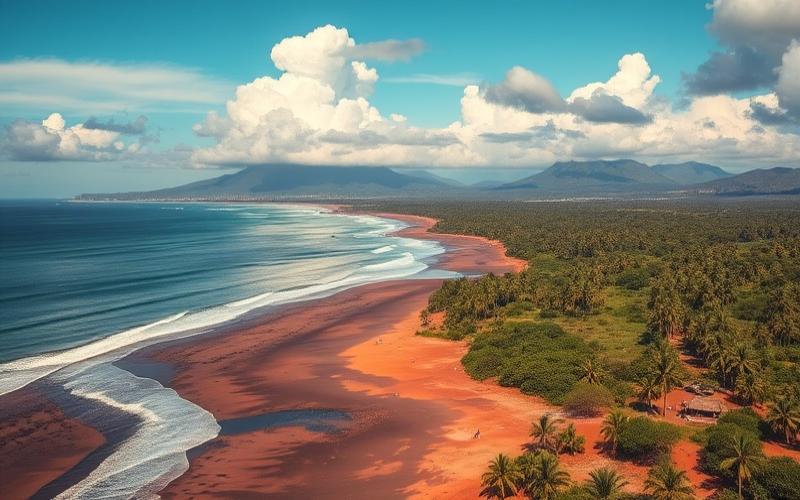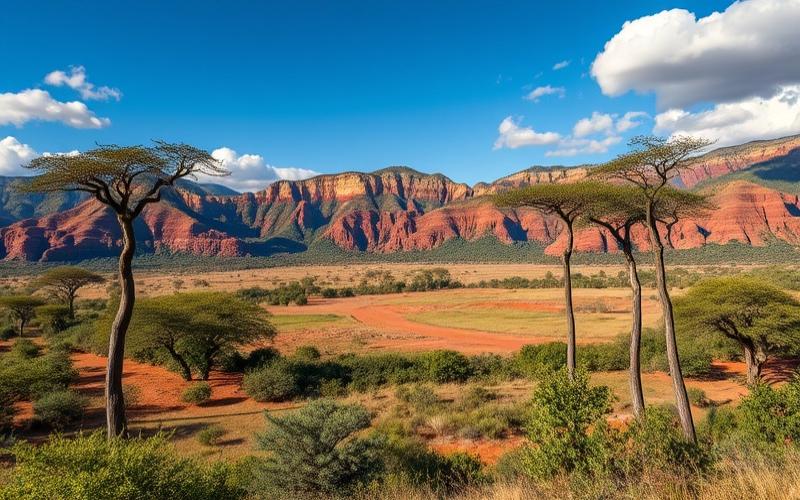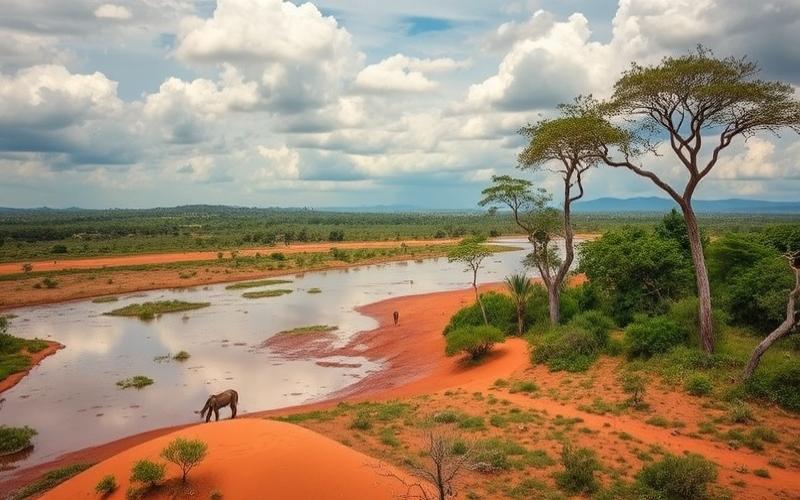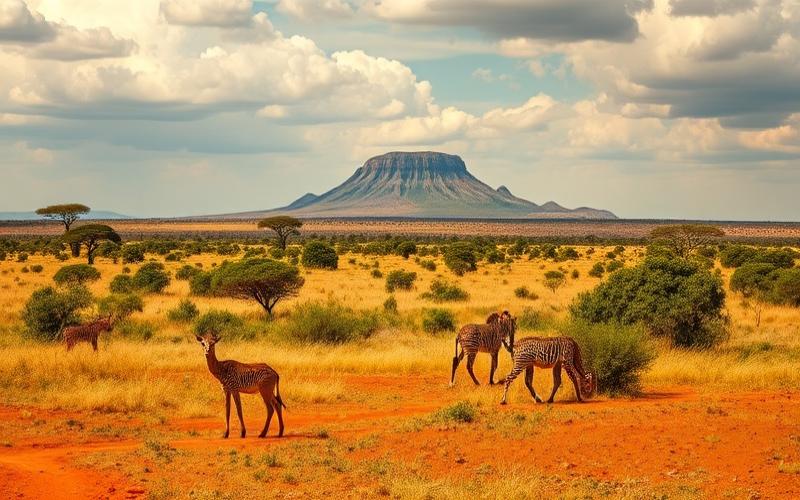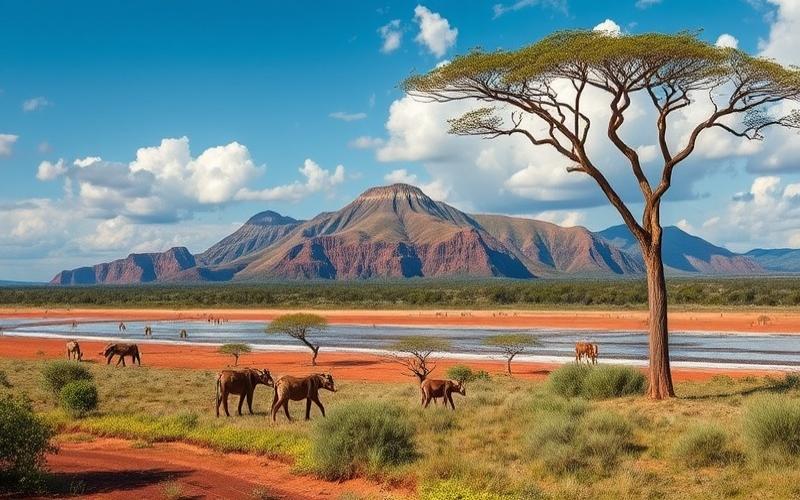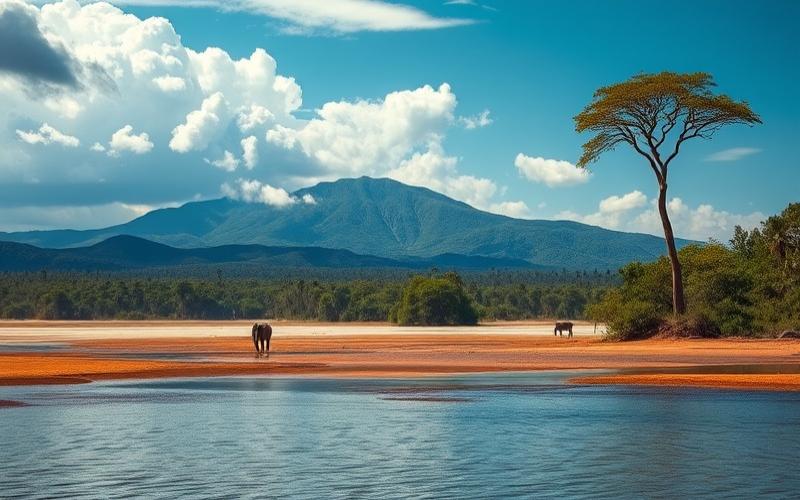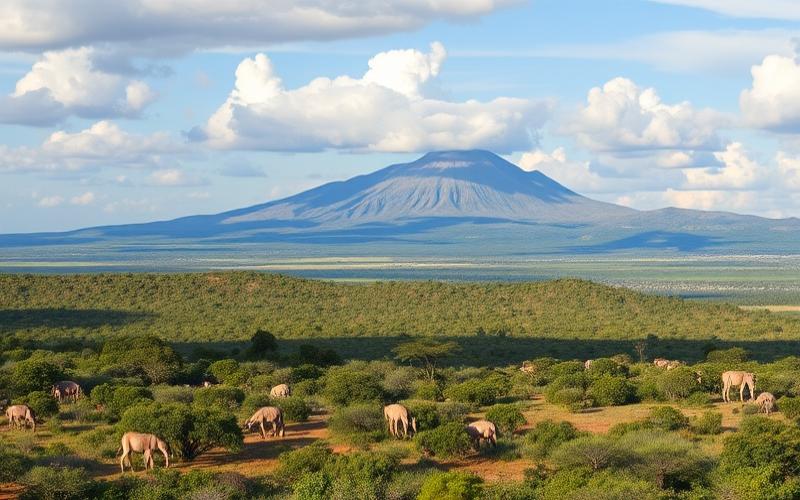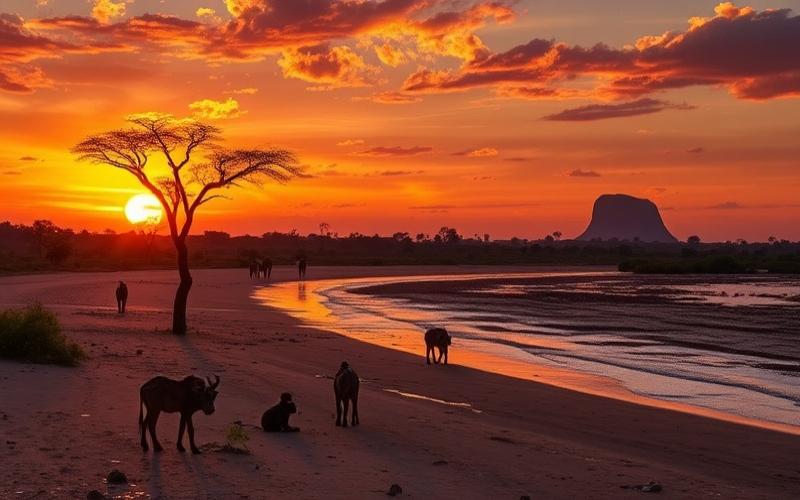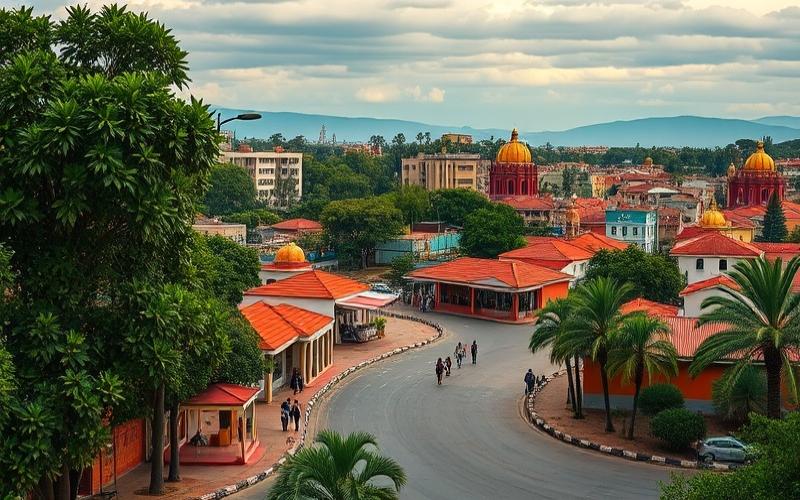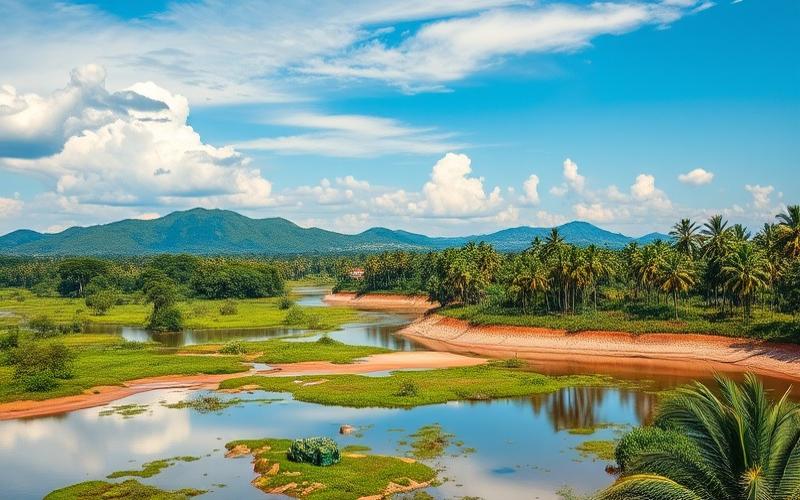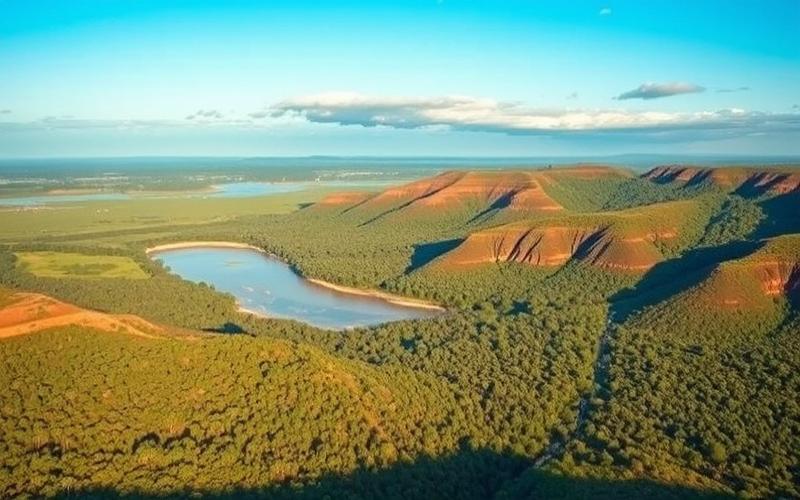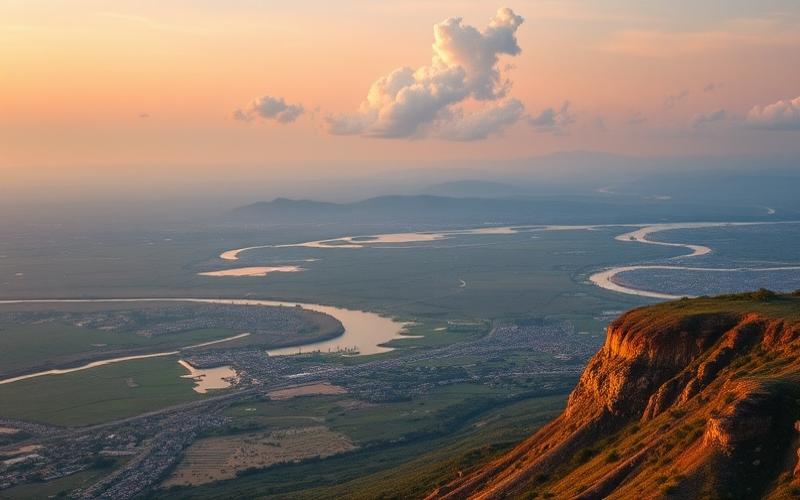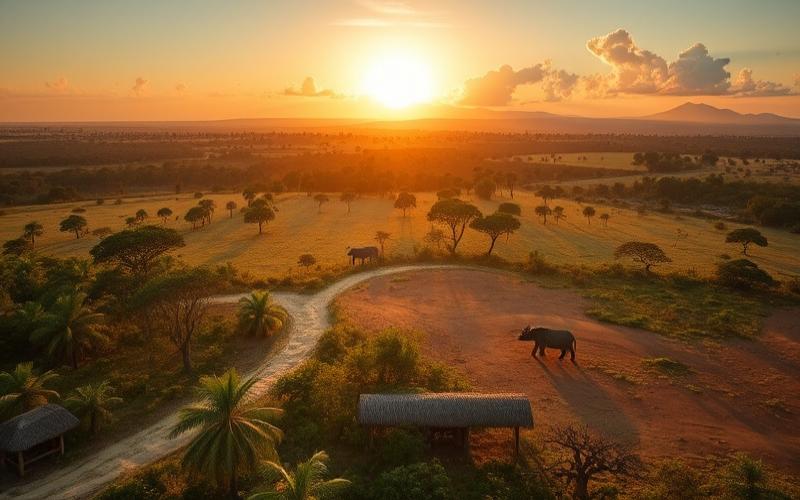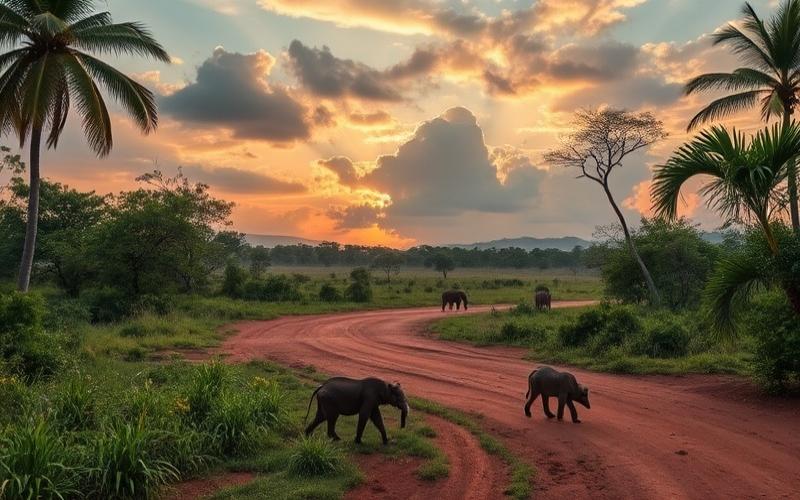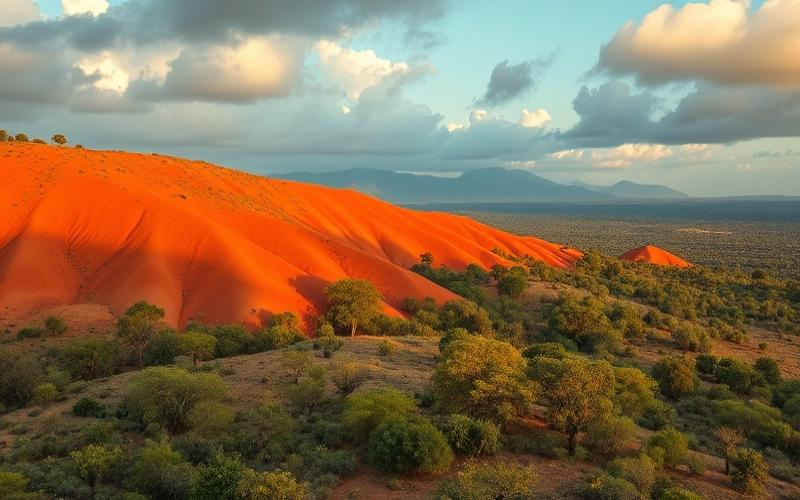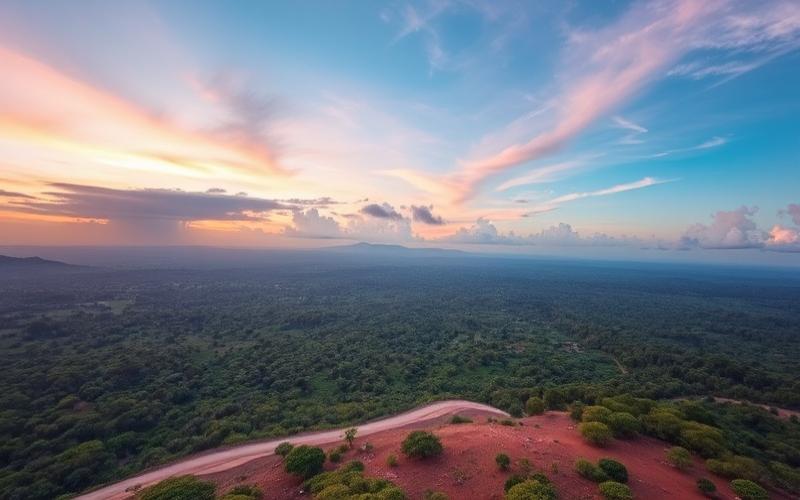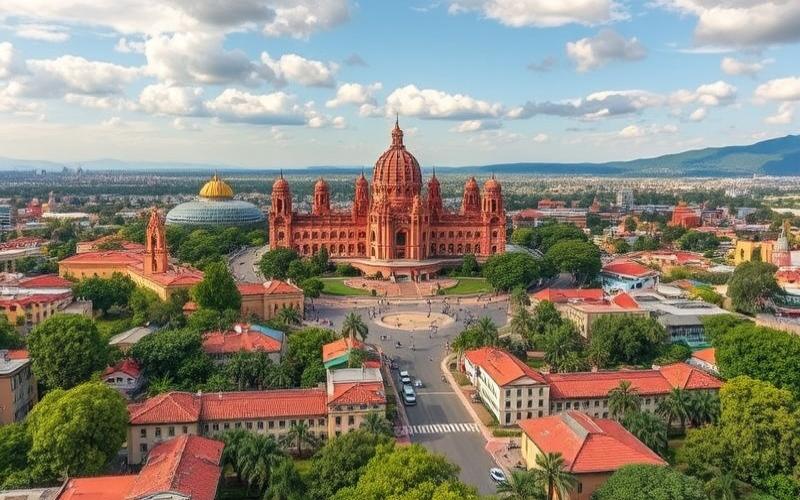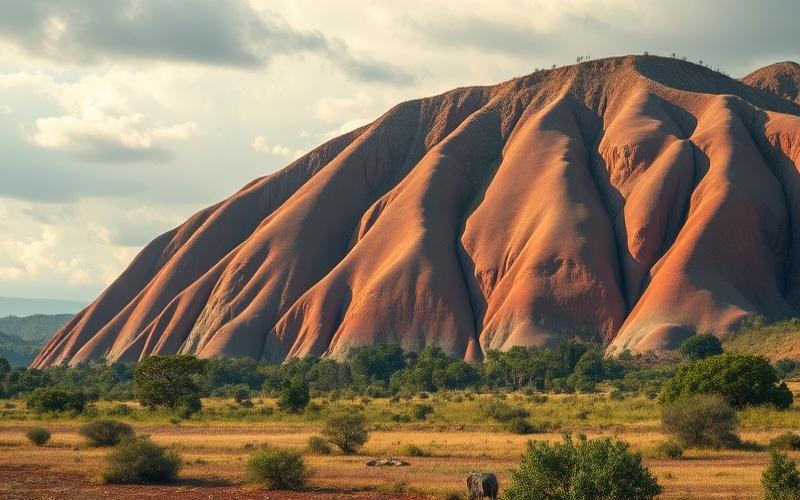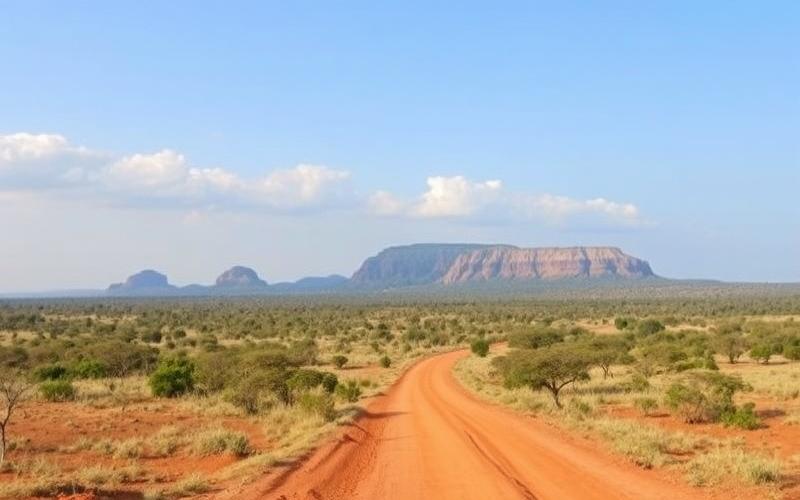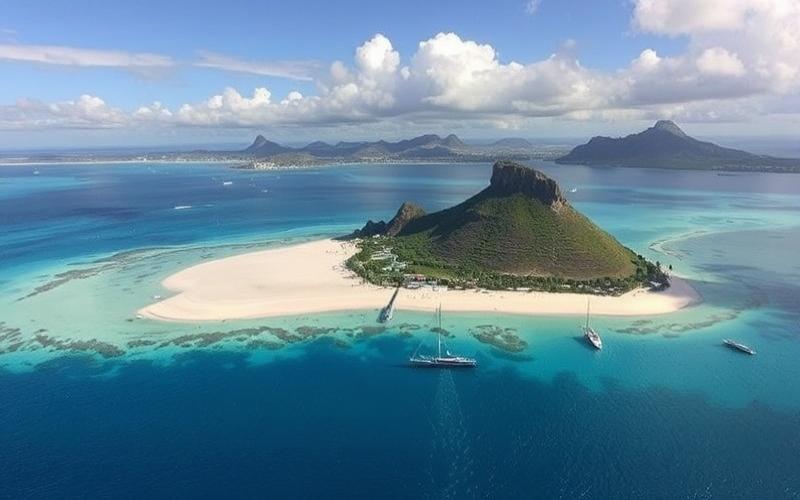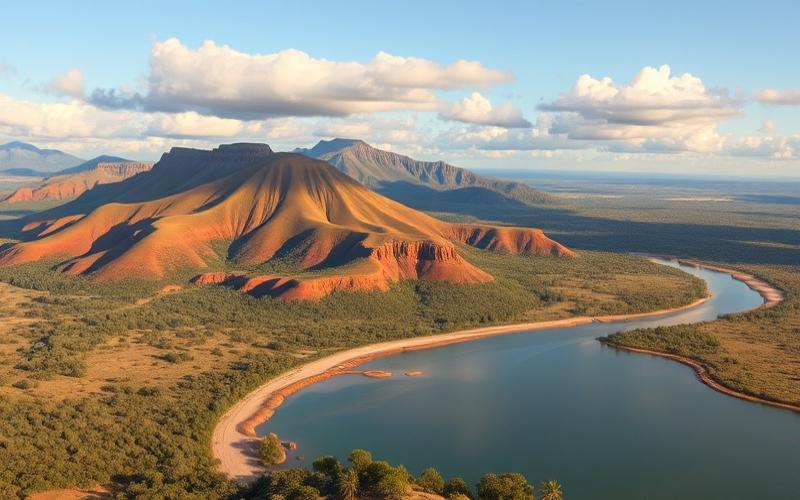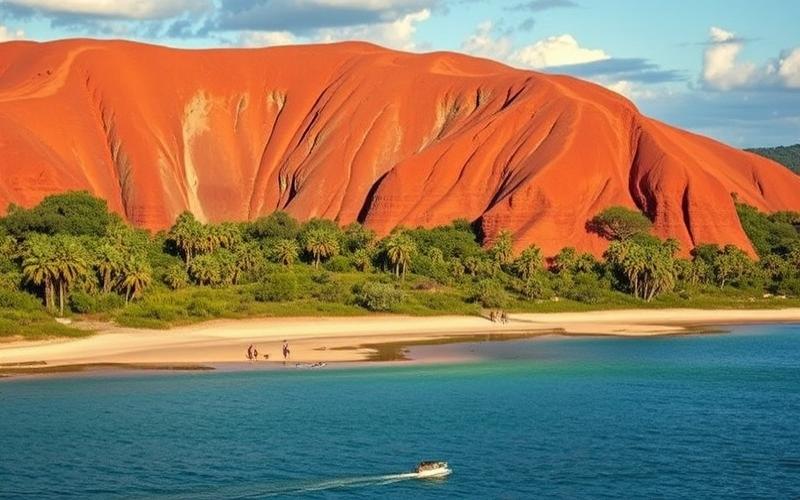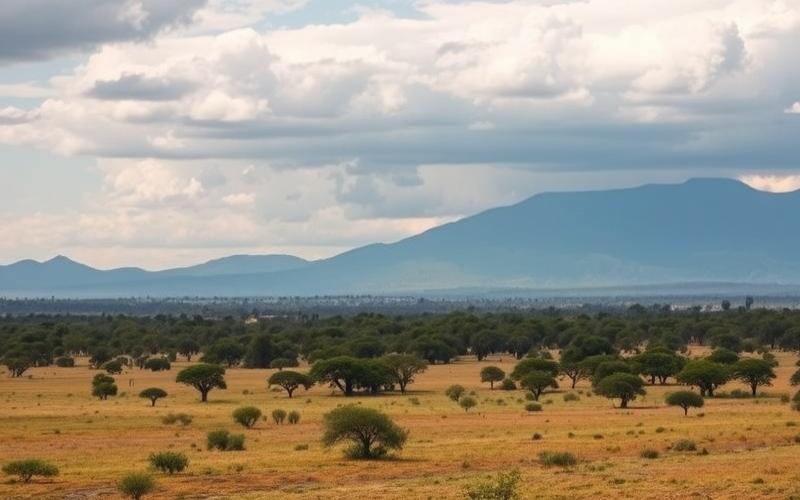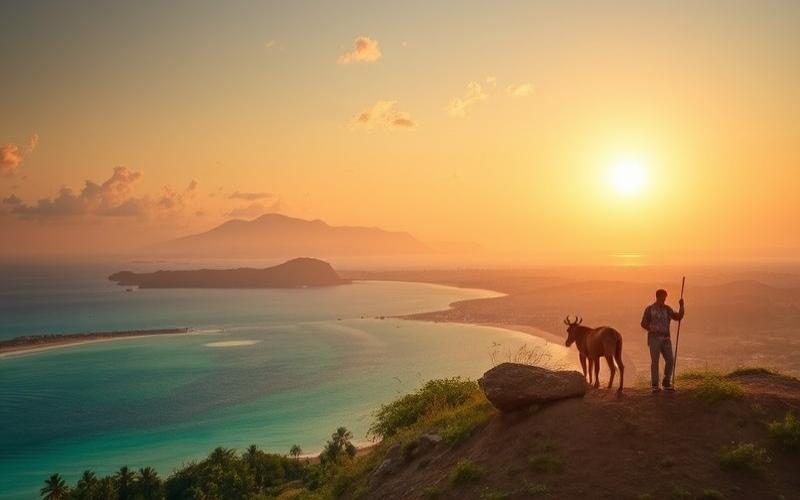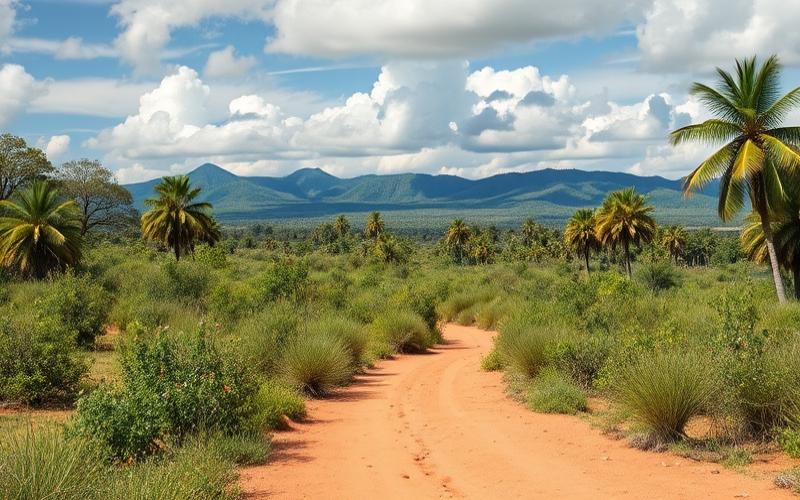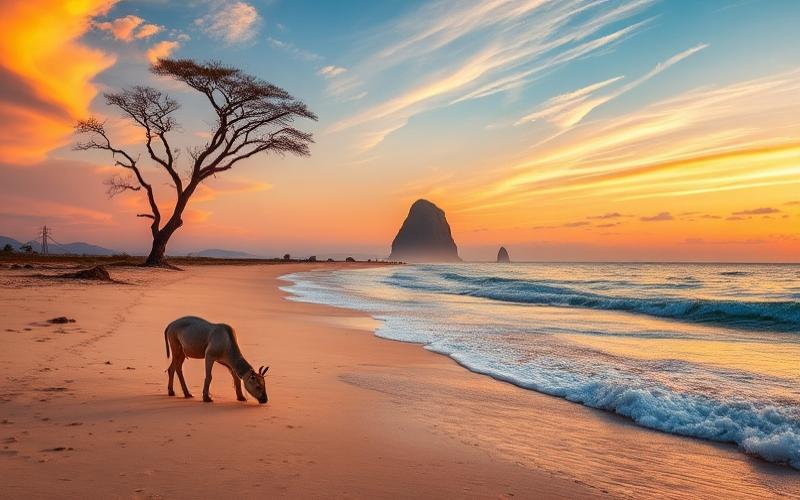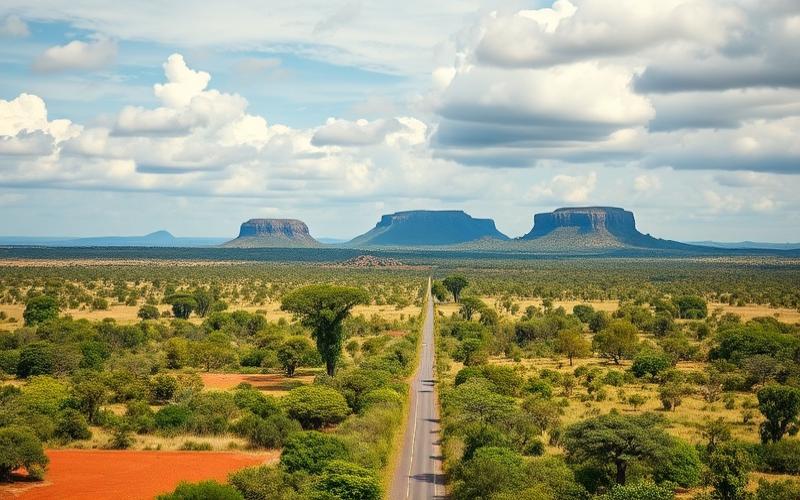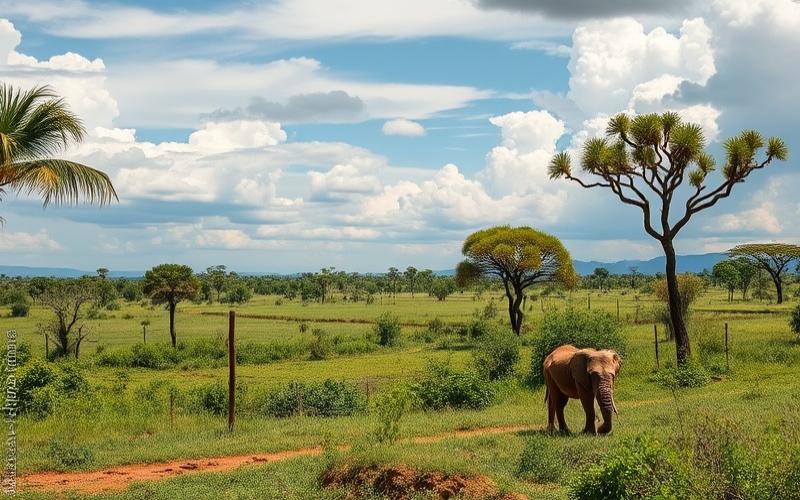
 Published on and written by Cyril Jarnias
Published on and written by Cyril Jarnias
With the rise of remote work and the pursuit of enriching life experiences, digital nomads are increasingly flocking to exotic and affordable destinations, among which Madagascar stands out for its breathtaking landscapes and unique culture. However, this trend is not without consequences for the local rental market.
Indeed, this growing influx of digital nomad workers is creating increased demand for suitable housing, often featuring coworking spaces and high-speed internet, which has a significant impact on local real estate prices.
While this dynamic offers economic opportunities for local property owners and entrepreneurs, it also raises questions about housing accessibility for Malagasy residents, painting a complex picture of this rapidly developing phenomenon.
The Digital Nomad Phenomenon in Madagascar
The digital nomad phenomenon in Madagascar is gaining momentum, attracting more and more remote workers to this unique island in the Indian Ocean. This trend is explained by several factors that make Madagascar an attractive destination for this growing community.
Main Attractions for Digital Nomads
Madagascar appeals to digital nomads with its exceptional natural wealth, known as the “land of lemurs and baobabs.” This unique biodiversity provides an inspiring work environment, far from traditional urban settings. The island offers an ideal mix of adventure and modern amenities, allowing remote workers to combine professional productivity with exploration.
Malagasy cities offer different experiences depending on digital nomads’ preferences:
- Antananarivo, the capital, hosts a vibrant community of digital nomads with numerous cafes and coworking spaces
- Mahajanga attracts those seeking a balance between work and relaxation
- Fianarantsoa appeals with its cultural authenticity
Infrastructure for Remote Workers
Several coworking spaces have emerged to meet digital nomads’ needs:
| Coworking Space | Location | Facilities |
|---|---|---|
| Red Zone Coworking | Antsakaviro, Antananarivo | WiFi, standing desks, phone booths |
| SKIILLZ | Ambodivona, Antananarivo | WiFi |
| Habaka | Antananarivo | Coworking services |
The coliving concept is also developing in Madagascar, offering accommodation solutions that combine private and shared spaces. This format is particularly suitable for remote workers seeking community experience while preserving their privacy. Typical coliving residences offer private rooms with access to equipped kitchens, living rooms, shared workspaces, and sometimes recreational facilities like gyms.
Challenges and Adaptation
Despite its advantages, Madagascar presents specific challenges for digital nomads. Internet quality and reliability can vary significantly by region, posing a major obstacle for workers dependent on stable connections. Occasional power outages also require backup solutions to maintain productivity.
Cultural adaptation represents another challenge. The language barrier (French and Malagasy being the main languages) can complicate integration. Differences in lifestyle pace and professional practices require an adjustment period for newcomers.
Economic and Social Impact
The growing presence of digital nomads positively influences the local economy. Their extended stays, unlike traditional tourism, generate more stable income for:
- Long-term accommodations
- Local restaurants and cafes
- Coworking spaces
- Service providers (guides, transportation, etc.)
This community contributes to Madagascar’s economic diversification, traditionally dependent on seasonal tourism and agriculture. Digital nomads also bring international skills and perspectives, potentially fostering cultural and professional exchanges with the local population.
Local perceptions are evolving in response to this new form of foreign presence. While some see it as a welcome economic opportunity, others worry about potential real estate price increases or cultural dilution. A balance must be found for this phenomenon to benefit both digital nomads and local communities.
Good to Know:
Madagascar is attracting more digital nomads thanks to its stunning natural beauty, relatively affordable cost of living, and growing variety of coworking spaces, although these are mainly concentrated in cities like Antananarivo and Nosy Be. Nevertheless, these itinerant workers may face challenges such as sometimes unstable internet infrastructure and the need for cultural adaptation. Their presence has a tangible impact on the local economy, particularly through increased demand in hospitality and restaurant sectors, driving adaptations in service offerings. Meanwhile, local perceptions are slowly evolving in response to this influx, with a mix of economic interest and skepticism toward these modern lifestyles.
The Appeal of Coliving for Digital Nomads
Coliving in Madagascar represents an accommodation solution particularly suited to digital nomads, offering an attractive alternative to traditional housing on the island. This trend, popular among millennials, perfectly meets the specific needs of nomadic workers seeking flexibility and social connection.
Economic Benefits of Coliving for Digital Nomads
Coliving in Madagascar stands out for its advantageous value compared to traditional accommodation options. This all-inclusive formula allows digital nomads to make substantial savings on their housing budget, a determining factor for those wishing to extend their stay on the island. Coliving spaces typically offer:
- Furnished rooms with individual leases
- Included services (electricity, water, internet)
- No hidden fees or high security deposits
- Transparent pricing facilitating budget management
Social and Community Dimension
One of the main attractions of coliving in Madagascar lies in its community dimension, particularly valuable for digital nomads:
Coliving brings together people from diverse backgrounds and encourages them to interact, collaborate, and form new friendships. This setup fosters intercultural exchanges and creates a stimulating environment that can boost digital nomads’ creativity and productivity. The example of Sarah, a French graphic designer, testifies to this reality: she shared that her most creative work was done in this type of environment in Madagascar.
Practical and Functional Aspects
Coliving spaces in Madagascar are specifically designed to meet remote workers’ needs:
| Feature | Benefit for Digital Nomads |
|---|---|
| High-speed internet connection | Essential for remote work |
| Dedicated workspaces | Promotes productivity and concentration |
| Multipurpose common areas | Enables alternation between collaborative work and networking |
| Cleaning services | Frees up time to explore the island |
Flexibility Suited to Nomadic Lifestyle
The flexibility of coliving arrangements perfectly matches digital nomads’ unpredictable lifestyle rhythms. Short-term leases allow nomads to easily adapt to their work and travel schedules without committing to binding contracts typical of the traditional Malagasy rental market.
Integration into Malagasy Rental Landscape
The development of coliving spaces in Madagascar represents a significant evolution of the local real estate market, offering a modern alternative to traditional accommodation options. These spaces allow digital nomads to immerse themselves in local culture while benefiting from an optimal work environment and international community.
Thus, coliving in Madagascar constitutes much more than just a housing solution; it’s a true lifestyle that supports the nomadic style, offering the perfect balance between work, travel, and community. This model addresses the isolation and connectivity challenges faced by remote workers by providing a dynamic and collaborative environment where digital nomads can thrive professionally and personally while exploring Madagascar’s natural and cultural wonders.
Good to Know:
In Madagascar, coliving attracts digital nomads thanks to its contract flexibility, allowing short stays without long-term commitment, a major advantage compared to the often rigid local rental market. This format fosters social interactions with common spaces to meet other nomads and share experiences, while offering amenities like high-speed Wi-Fi, crucial for online work. Coliving spaces in Antananarivo or Nosy Be, for example, offer integrated services like co-working, simplifying daily life for these nomadic workers. Shared experiences suggest that costs for these solutions can be more competitive than traditional rentals, often including utilities in the rent. Some testimonials reveal that the immersion facilitated by coliving also allows for better integration and understanding of local culture, enriching the stay.
Impact of Digital Nomads on Malagasy Rental Market
In areas favored by digital nomads in Madagascar, such as Antananarivo or Nosy Be, rental demand has seen a notable increase. Well-equipped and flexible temporary housing is particularly sought after to meet the needs of this international audience, accustomed to working remotely and requiring reliable digital infrastructure.
Effects on Local Rental Market:
- Rent increases in certain attractive neighborhoods, particularly those near urban centers or tourist areas
- Temporary reduction in available supply for local residents: some traditional apartments are being converted into housing adapted for digital nomads (coliving, fully equipped studios), thereby reducing access to classic housing for the Malagasy population
- Concentration of the phenomenon in a few urban or coastal hotspots; the impact thus remains localized but can be significant
Generated Economic Opportunities:
- Development of new housing specifically meeting digital nomads’ expectations (modern comfort, shared spaces)
- Creation of modern coworking spaces adapted to flexible and collaborative work
- Increased revenue for local providers related to real estate, tourism, and ancillary services (restaurants, mobility)
Encountered Challenges:
| Observed Challenges | Potential Consequences |
|---|---|
| Rapid real estate price increases | More difficult access to decent housing |
| Reduction in traditional supply | Tension in residential rental market |
| Increased specialization | Social segmentation between locals/nomads |
Illustrative Testimonials
“For the past two years, we’ve received many more requests from expatriates working online. They often look for furnished apartments with good internet connection. This has driven up rents in certain neighborhoods,” explains Rina Andrianarisoa, real estate agent in Antananarivo.
“I had to leave my studio because the owner now wants to rent it only to foreigners willing to pay more,” testifies Hery Razafindrakoto, a young employee living downtown.
The dynamism brought by this new international clientele undoubtedly contributes to transforming the Malagasy real estate landscape. However, it also raises the crucial question of balance between overall economic attractiveness and maintaining accessible housing for all residents.
Good to Know:
The rising popularity of digital nomads in Madagascar, particularly in sought-after destinations like Antananarivo and Nosy Be, has led to a notable increase in rental demand, especially for furnished and well-equipped housing. This increased pressure on the rental market has caused rent hikes, sometimes making housing access difficult for local residents who face prohibitive prices. Some real estate agents, such as Marc, an agent in Antananarivo, observe a transformation in the sector with the construction of modern residences and coworking spaces to attract this clientele. While these economic developments are beneficial, they also pose the challenge of displacing local populations, a risk highlighted by many residents. To address this, adapted public policies and price regulation are sometimes considered to avoid socioeconomic division exacerbated by this new phenomenon.
Connectivity Challenges for Temporary Residences
Internet connectivity constitutes a crucial factor for digital nomads considering Madagascar as a remote work destination. This Indian Ocean island presents contrasting digital infrastructure that varies considerably by geographic area.
Regional Disparities in Connectivity
Internet connection quality in Madagascar varies strongly by region:
| Region | Network Speed | Coverage Quality |
| Antananarivo | 4G/LTE | Excellent |
| Coastal cities | 3G/4G | Good |
| Rural areas | 2G/3G | Limited |
| Mountain regions | 2G | Poor |
In the capital Antananarivo and main coastal cities, digital nomads can access relatively fast and stable connections. In contrast, rural and mountainous areas suffer from limited or even non-existent connectivity, making remote work particularly difficult.
Telecom Operators and Available Solutions
Three main operators dominate the Malagasy market:
- Airtel: offers the most extensive coverage, particularly advantageous in rural areas
- Telma: has significant infrastructure via Majunga and Taolagnaro, enabling speeds of 20-40 Mbps in certain areas
- Orange: has a hub in Antananarivo
For digital nomads, acquiring a local SIM card with data plan proves essential as a primary or backup solution. This approach helps circumvent limitations of often unstable Wi-Fi networks in accommodations.
Impact on Rental Market
Internet connection reliability directly influences the accommodation market for digital nomads in Madagascar. Property owners aware of this requirement are beginning to adapt their offerings:
- Housing equipped with reliable connections can command higher rates
- International hotels and resorts generally offer better digital infrastructure
- In Nosy-Be, a popular tourist destination, average internet speed ranges between 3-5 Mbps, sufficient for basic browsing but limited for video conferences
“Connectivity in Madagascar is a journey of discovery. Be prepared, be flexible.”
Adapted Workspaces
The emergence of coworking spaces and cafes with reliable Wi-Fi is beginning to develop, particularly in tourist areas like Nosy-Be. These places offer not only more stable internet connections but also networking opportunities with other digital nomads and the local population.
Practical Recommendations
- Systematically request internet speed tests before booking accommodation
- Plan backup solutions (external battery, multiple SIM cards)
- Prepare for power outages affecting connectivity
- Prioritize urban areas for tasks requiring stable connections
- Schedule video calls and large file transfers during off-peak hours
Digital nomads who adapt to these constraints can nevertheless enjoy an enriching experience in Madagascar, combining remote work with discovery of a country with exceptional landscapes and unique culture.
Good to Know:
For digital nomads, internet connectivity is crucial when choosing temporary residences in Madagascar, where infrastructure varies significantly by region. National coverage is about 20%, well below digital nomads’ requirements for fast and reliable connections. In urban areas like Antananarivo, housing with good internet connection is in high demand, driving up rental market prices. In contrast, rural areas remain poorly covered, representing a considerable challenge for attracting this population. Some local initiatives, such as fiber optic deployment and public-private partnerships to expand broadband network, aim to improve internet access. Property owners sometimes undertake renovations to include reliable internet solutions, thus influencing availability and cost of residences suitable for digital nomads.
Disclaimer: The information provided on this website is for informational purposes only and does not constitute financial, legal, or professional advice. We encourage you to consult qualified experts before making any investment, real estate, or expatriation decisions. Although we strive to maintain up-to-date and accurate information, we do not guarantee the completeness, accuracy, or timeliness of the proposed content. As investment and expatriation involve risks, we disclaim any liability for potential losses or damages arising from the use of this site. Your use of this site confirms your acceptance of these terms and your understanding of the associated risks.

